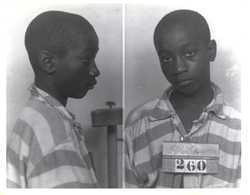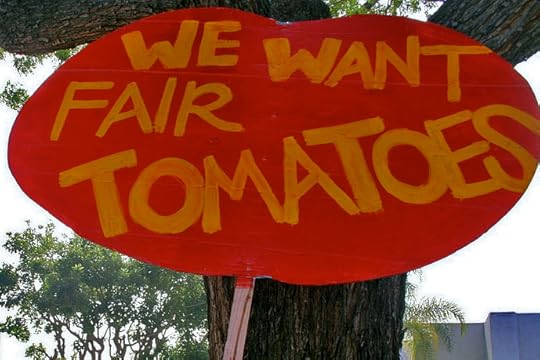Greg Mitchell's Blog, page 147
January 20, 2014
Why 'NYT' Spiked Famous MLK, Jr. Piece
Last January I mentioned, in noting the passing of poet/editor Harvey Shapiro, that he had assigned for the NYT Magazine the famous "Letter from the Birmingham Jail" by Martin Luther King, Jr. --but it was killed by the Times. Now Tim Noah has looked at why.
The Times, S. Jonathan Bass reports in Blessed Are The Peacemakers: Martin Luther King, Eight White Religious Leaders, and the ‘Letter From Birmingham Jail,’ initially scheduled the letter for publication in late May. But first it wanted (in the recollection of King adviser Stanley Levison) a “little introduction setting forth the circumstances of the piece.” Then it decided, no, what it really wanted was for King to “write a feature article based on the letter.” Or, possibly, it wanted both. Before King had a chance to jump through these hoops, the New York Post (in those distant days a plausible rival to the Times) got a copy of the letter and published unauthorized excerpts, killing the Times’s interest.I wrote couple pieces for the magazine in the early 1980s and I can confirm Noah's comment: "The Times Magazine was, in those days, a notoriously Politburo-like redoubt of editing-by-committee." -- G.M.
Published on January 20, 2014 05:00
MLK Jr. on War
Martin Luther King, Jr. speaking out on the Vietnam War in Atlanta on Feb. 4, 1968: "God didn't call America to engage in a senseless, unjust war. . . . And we are criminals in that war. We've committed more war crimes almost than any nation in the world, and I'm going to continue to say it. And we won't stop it because of our pride and our arrogance as a nation. But God has a way of even putting nations in their place." King then predicted this response from the Almighty: "And if you don't stop your reckless course, I'll rise up and break the backbone of your power."
Published on January 20, 2014 04:30
January 19, 2014
New Trial Sought for Kid, Age 14
 But 70 years too late. Because, you see, we executed him in 1944. At 14 he remains the youngest prisoner put to death in this country in many decades. George Stinney, Jr. was (you won't be shocked) charged with killing two white girls in S. Carolina. His execution was well-publicized and brutal (as I cover in my e-book on capital punishment in the USA,
Dead Reckoning
). Stinney weighed just 90 pounds and the Bible he carried had to be used for him to sit on so the electric chair could do its work. Now lawyers seek a new trial.
But 70 years too late. Because, you see, we executed him in 1944. At 14 he remains the youngest prisoner put to death in this country in many decades. George Stinney, Jr. was (you won't be shocked) charged with killing two white girls in S. Carolina. His execution was well-publicized and brutal (as I cover in my e-book on capital punishment in the USA,
Dead Reckoning
). Stinney weighed just 90 pounds and the Bible he carried had to be used for him to sit on so the electric chair could do its work. Now lawyers seek a new trial. Burgess said a member of the search party that found the girls' bodies has offered new testimony that raises questions about where the crime was carried out and whether Stinney was capable of doing it.--G.M.
Stinney's sister, Amie Ruffner, now in her 70s and living in New Jersey, will testify that Stinney was with her the entire day of the murders and could not have killed the girls, Burgess said.
She was never asked to speak on her brother's behalf at the original trial.
Published on January 19, 2014 19:50
The Super Bong?
 Or Super (Pipe) Bowl? Go wild with your own suggestions. With Denver in, we're already halfway to reefer madness. Just need Seattle win, in another soon-to-be legal pot zone, and we can call it the Super Weed Bowl. "Phil, both teams are sky high for this game and ready to come out smokin'." Although come to think of it, San Fran has long fabled history with Mary Jane herself. --G.M.
Or Super (Pipe) Bowl? Go wild with your own suggestions. With Denver in, we're already halfway to reefer madness. Just need Seattle win, in another soon-to-be legal pot zone, and we can call it the Super Weed Bowl. "Phil, both teams are sky high for this game and ready to come out smokin'." Although come to think of it, San Fran has long fabled history with Mary Jane herself. --G.M.
Published on January 19, 2014 16:23
'Home' Disadvantage in NFL Title Games?
HSH Associates, the nation's largest publisher of mortgage and consumer loan information, puts a decidedly different spin on today's football match-ups. "Is there any relation between home prices, mortgage rates, homeownership rates and success in the NFL?"
Answer: "Not really, but we thought it would be fun to examine the characteristics of the housing markets of this year’s NFL playoff teams." Sample:
Answer: "Not really, but we thought it would be fun to examine the characteristics of the housing markets of this year’s NFL playoff teams." Sample:
CenturyLink Field in Seattle is about the toughest place to play in the NFL. Surviving in Seattle’s housing market isn’t exactly easy either. High home prices and mortgage rates, not to mention expensive ticket prices to Seahawks games, make winning in the Emerald City, both on and off the field, pretty difficult.--B.B.
Published on January 19, 2014 09:11
Rosanne: Arkansas Traveler
Rosanne Cash takes the lyrical road home in her new album, The River & the Thread. Here she talks to CBS Morning News today about her father Johnny Cash's strength that grew out of the "gumbo soil' of Dyess, Arkansas, and how his sadness took root there, too."
You thought you'd left it all behind--B.B.
You thought you'd up and gone
But all you did was figure out
How to take the long way home.
Published on January 19, 2014 08:59
Interesting
 I confess I love most of the Most Interesting Man in the World commercials, especially the radio spots. I think it's the "Frontline" guy doing the narration. I've known for awhile that the actor, a healthy 75, is interesting in his own right, in real life, but now the Boston Globe has a feature today on this fellow using his "cult-like" status, from Vermont, to tackle the continuing and horrible global landmine problem. Then there's this:
I confess I love most of the Most Interesting Man in the World commercials, especially the radio spots. I think it's the "Frontline" guy doing the narration. I've known for awhile that the actor, a healthy 75, is interesting in his own right, in real life, but now the Boston Globe has a feature today on this fellow using his "cult-like" status, from Vermont, to tackle the continuing and horrible global landmine problem. Then there's this:As the surprise guest at President Obama’s private birthday weekend at Camp David, he was snuck onto the archery range — where multiple arrows were placed in the bull’s-eye — to wait for the guest of honor to arrive.
When Obama approached from behind and marveled at the mystery archer’s astonishing aim, Jonathan Goldsmith turned and quipped, “You’re late.”
The leader of the free world took one look at him and doubled over in laughter — and later insisted he sit next to him at every meal.--G.M.
Published on January 19, 2014 08:17
January 18, 2014
A Lego Version of "Dr. Strangelove"
A truly amazing version of Stanley Kubrick's greatest movie (released 50 years ago this month)--via Legos. Part II features the good doctor and the "mineshaft gap" scene. Yes, that's the actual dialogue (and voices of actors) from the film. (Also, see wild, original trailer for the film, which was axed by the studio.)-- G.M.
Published on January 18, 2014 19:00
One Happy Fela
Alex Gibney's "Finding Fela" doc got a great reception at Sundance (including a live performance) last night, it says here. Here's Alex talking about his favorite Fela song. And below what I presume is the actual clip. -- G.M.
Published on January 18, 2014 17:02
Wal-Mart Signs on to Fair Food Program
 The estimable Barry Estabrook, author of Tomatoland: How Modern Industrial Agriculture Destroyed Our Most Alluring Fruit, has some good news to report on the tomato front. Wal-Mart, which sells more groceries than any other retailer in the world, just signed on to the Fair Food Program. Here’s why you should care.
The estimable Barry Estabrook, author of Tomatoland: How Modern Industrial Agriculture Destroyed Our Most Alluring Fruit, has some good news to report on the tomato front. Wal-Mart, which sells more groceries than any other retailer in the world, just signed on to the Fair Food Program. Here’s why you should care.The FPP was created by the Coalition of Immokalee Workers, a human rights group based in Immokalee, FL that is home to the state’s largest migrant workers’ community. The FPP—“one of the great human rights success stories of our day"--not only improves wages, but also includes a code of conduct that outlaws debt bondage and mandates humane working conditions.
Estabrook on what it means to have ginormous Wal-Mart sign on to the FFP:
The program is unique in that it creates a legal framework linking laborers, tomato farm owners, and final purchasers of tomatoes. The purchasers, which include such giants as McDonalds, Whole Foods Market, and Sodexo, have agreed to pay an additional penny per pound for the tomatoes they buy. In turn, the producers pass that penny directly along to the workers. A penny-a-pound might sound like a pittance, but it represents a 50 percent raise, the difference between making $50 and $80 a day.[More at Estabrook’s blog, Civil Eats.] -- B.B.
But the agreement goes far beyond providing a livable—albeit modest–income. Signatories abide to a Code of Conduct that enforces zero-tolerance for slavery or sexual assault. Workers attend education sessions to learn their rights and responsibilities under the Program. They are also informed about health and safety issues.
Published on January 18, 2014 07:50



